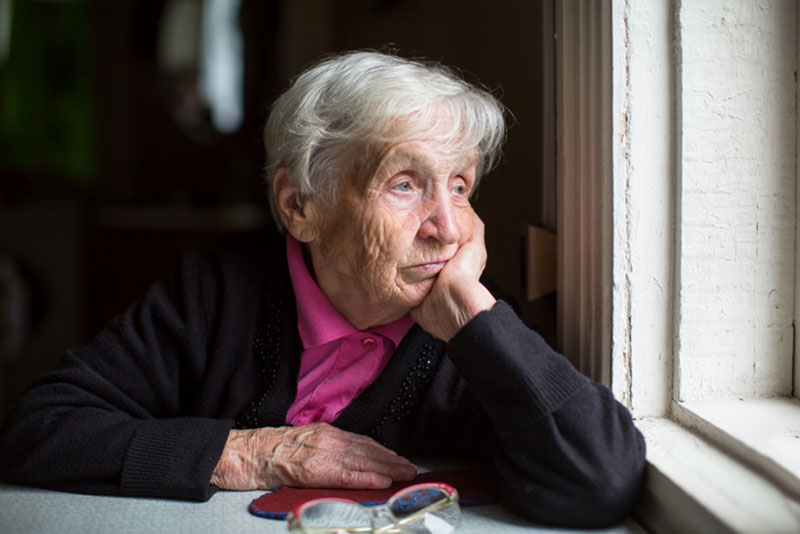
If you’re wondering how home care can help with anhedonia, we have answers!
Following the busyness of the holiday season, it’s not unusual for the winter gloom to kick in. Yet what may appear at first glance to be just a bit of boredom could actually be something bigger that should be dealt with.
What Is Anhedonia?
Anhedonia, is a loss of interest in activities that someone once loved and is an indication of depression that is often missed in seniors. Anhedonia commonly exhibits through the following symptoms:
- A need to self-isolate and steer clear of social activities and friendships
- Negative feelings directed at either other people or themselves
- A reduction in emotional abilities
It is always a good idea to talk with the physician if you observe any signs of depression in an older adult. Effective treatment options are available. Additionally, there are things family caregivers can do to help, too.
What Can You Do to Support an Older Loved One Living With Anhedonia?
- Modify the diet. Foods that have serotonin often help boost a person’s mood and fight depression. Add in more mood-enhancing foods such as dark chocolate, spinach, yogurt, whole-grain bread, and fruit.
- Encourage exercise. Exercise is another way to improve mood through the release of feel-good hormones. Bring the grandchildren over to play, head to the gym for a class or to swim, or simply take a walk together.
- Improve sleep habits. Sleep deprivation and anhedonia can play off one another in a cycle of anxiety, fatigue, and lack of motivation. Create and keep up with a regular sleep routine, have a light dinner and then shut down the television and electronics, and end the day with soothing activities such as working on a puzzle, reading a book, or listening to music.
- Get together with friends more often. This one might be hard, as anhedonia impacts a person’s desire to be around others. Figure out what types of social settings might feel less intimidating to the person: signing up for a course, joining a group at their place of worship, regular lunch or coffee dates with a good friend or neighbor, etc.
- Point out the positives. Reminiscing is a good activity for someone with anhedonia, enabling the individual to talk about fond memories. Look through scrapbooks, videos, or photo albums together and ask the person to talk about funny stories from the past. It may also make it possible to start a journal of the happy moments that happen each day, regardless of how insignificant they may seem. At the end of each week, look back through the journal together to observe how many positives there are in our everyday lives.
It’s also a good idea to recommend professional counseling, providing the chance for the senior to consult with a therapist on a consistent basis and to learn some coping tools to help. And, always try to be as empathetic and supportive as you can. This might be easier said than done with someone who seems to be unable to break out of negativity, but it’s vital that you let a senior loved one know you are there with them no matter what the mood.
How Home Care Can Help
An in-home caregiver is a great resource for an older loved one dealing with anhedonia. We can provide:
- Meal planning and preparation, incorporating healthy, serotonin-rich foods
- Companionship for engaging activities, enhanced socialization, exercising, and conversations
- Transportation to fun outings or medical appointments
- And more
Contact Anthem Home Care’s experts in home care and memory care in Portland, TX and the surrounding areas at 361-643-2323 to learn more about how home care can help enrich quality of life for someone you love.
